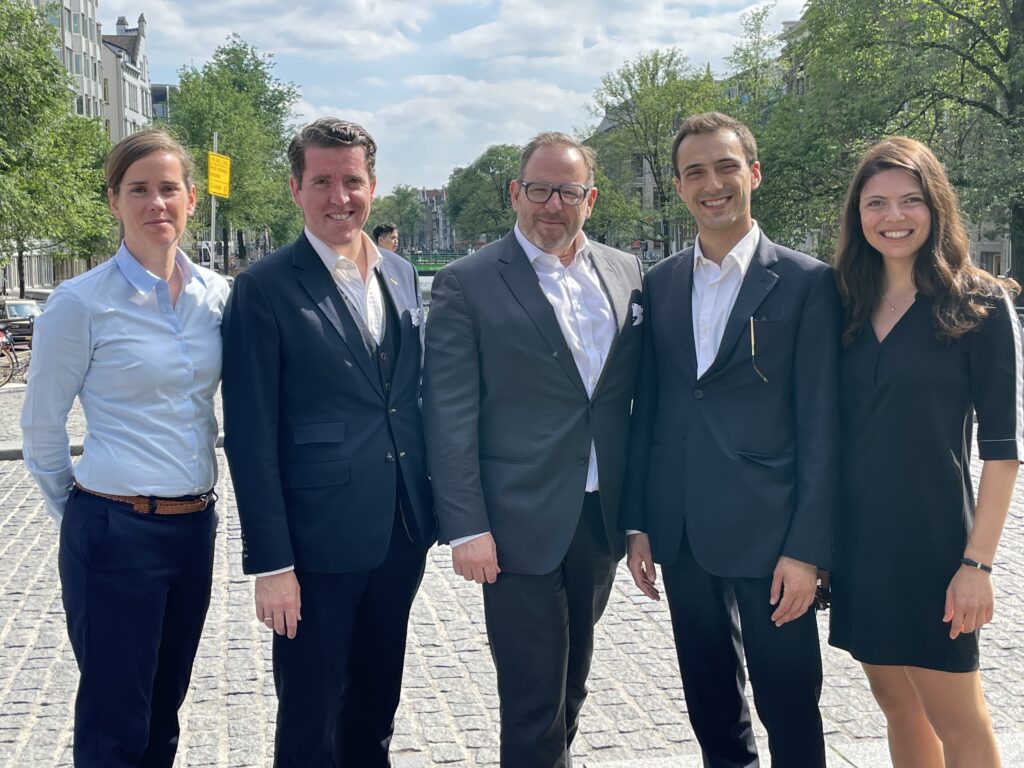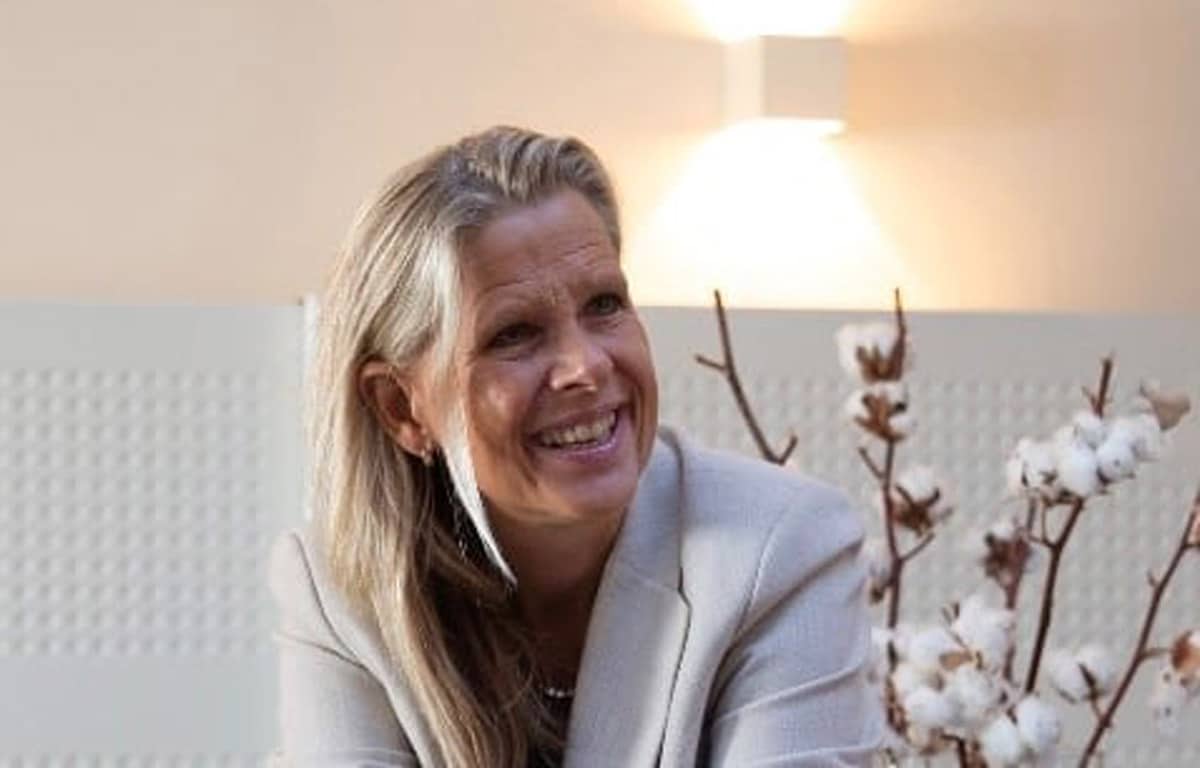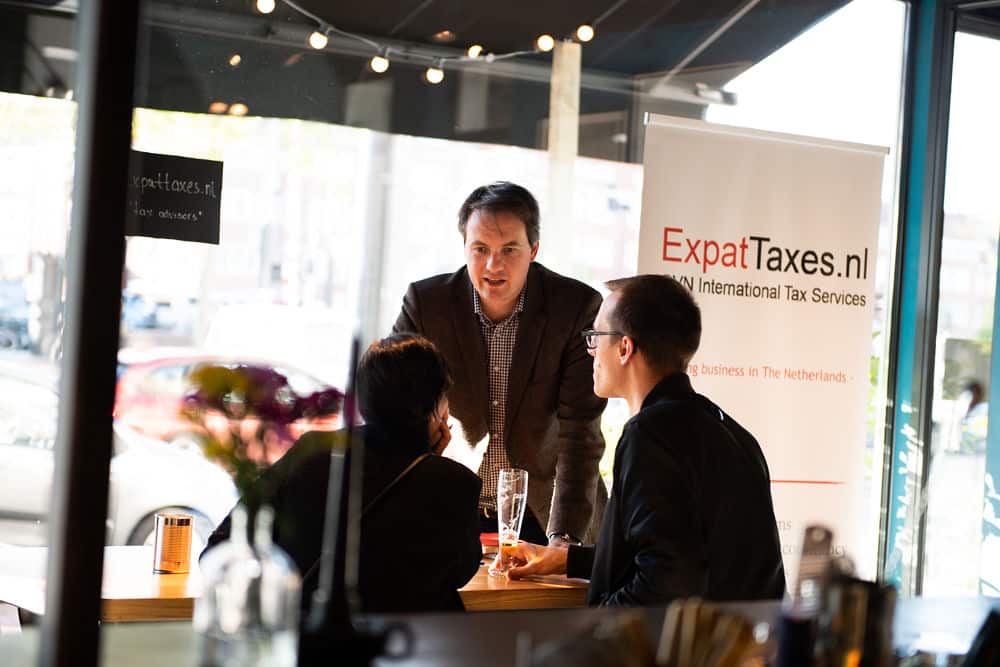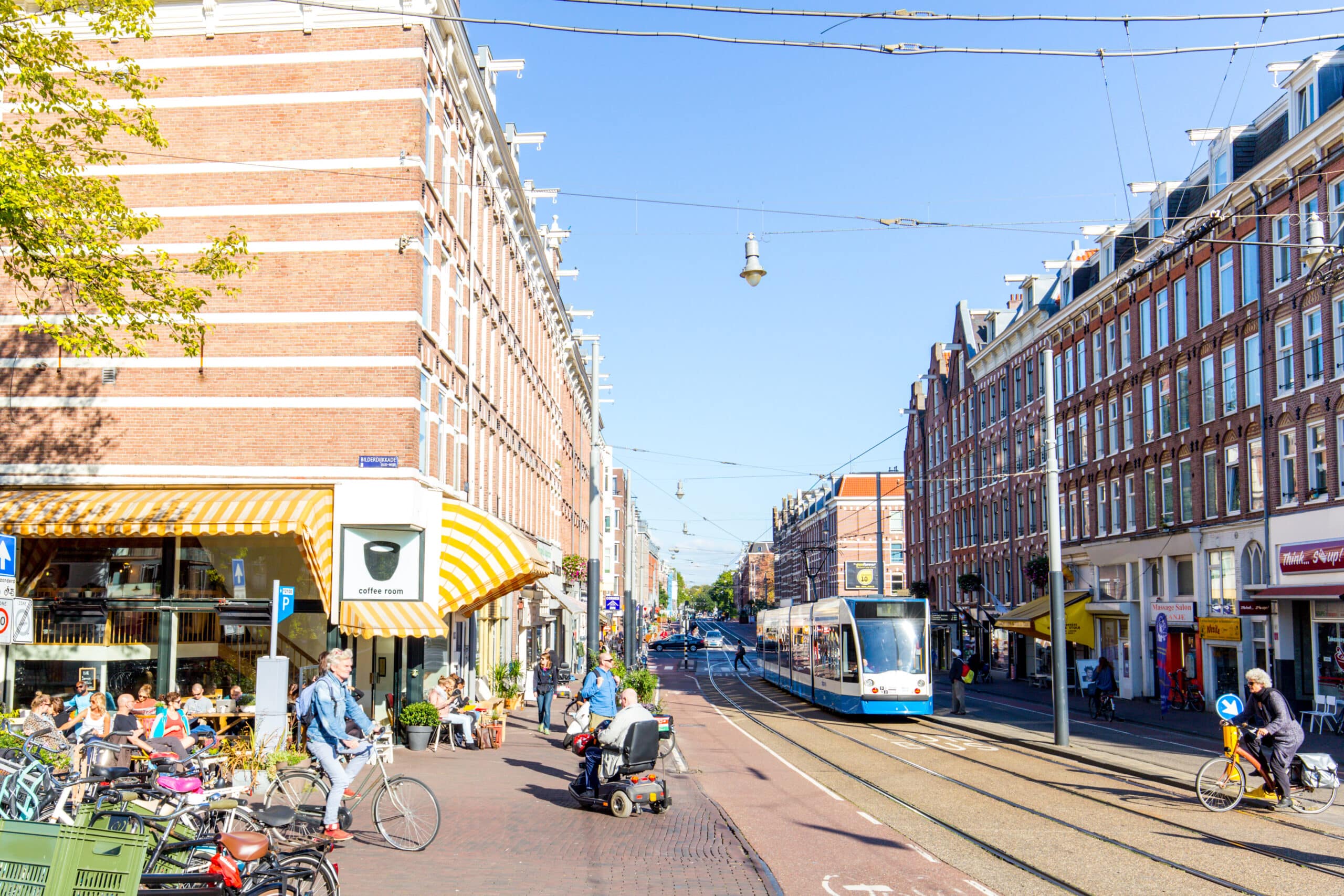Buying a home in Amsterdam 2025
Buying a home in Amsterdam or its surroundings is exciting. However, it can also be challenging, especially in 2025. The market is competitive, prices are rising, and securing your dream home requires preparation, patience, and a clear strategy. These practical tips will help you confidently navigate the process and stay grounded along the way.
1. Start with Your Numbers
Before you start searching for properties, it’s essential to know your financial boundaries. In the Netherlands, transaction costs typically range from 4-6% of the purchase price. These costs include notary fees and taxes, and you’ll need your own money to cover them.
If you end up overbidding and the home’s valuation is lower than the purchase price, you’ll need to use your savings to cover the gap. This is something every buyer should prepare for to avoid surprises later.
To avoid unnecessary stress, consult a mortgage advisor early on. They can help you calculate your borrowing capacity and ensure your budget is realistic. Knowing exactly what you can afford puts you in a stronger position when the right home comes along.
2. Work with Trusted Agents to Buy a Home in Amsterdam 2025
The Amsterdam market is complex. Ground leases, older foundations, and legal intricacies can all complicate the buying process. That’s where an experienced purchase agent comes in—they help you avoid costly mistakes and keep the process smooth.
It’s crucial to have a purchasing agent with the right network to get deals done. Demand far exceeds supply, and agents often prefer working with trusted colleagues who bring reliable clients. A certified purchase agent provides expertise and personalized attention, making sure your needs come first and guiding you every step of the way.
3. Focus on Energy Efficiency in Amsterdam 2025
In 2025, energy efficiency is more important than ever. Homes with an A or B energy label are not only more sustainable but could also qualify you for a mortgage rate deduction.
However, finding high-energy-label properties in Amsterdam’s older neighbourhoods can be challenging. If you’re considering a historic property, like a Rijksmonument, keep in mind that energy labels are not mandatory for these homes. If energy efficiency matters to you, think about budgeting for renovations or focusing on areas with newer housing stock. These steps can make a big difference in long-term savings.
4. How to Stay Realistic When Buying a Home in Amsterdam 2025
Buying a home in Amsterdam often requires compromise. With limited supply and high demand, it’s unlikely you’ll find a home that checks every single box on your wish list.
Don’t be discouraged if you lose out on a property. It’s normal to feel disappointed, but it doesn’t mean failure. Use the experience as an opportunity to better understand the market and adjust your approach.
Focus on what truly matters—like location and layout—and be flexible on less essential features. Staying realistic will help you avoid frustration and keep moving forward.
5. Prepare for Bidding Wars (and Know When to Stop)
Overbidding is still common in 2025, but buyers are approaching it more cautiously. It’s important to rely on professional advice to determine a home’s true value and avoid making emotional decisions.
Set a maximum bid limit before entering negotiations, and stick to it. Having a clear plan will help you stay calm and focused, even in competitive situations.
Here at How to Buy a House
At How to Buy a House, we have one simple goal: to share helpful information about homebuying and connect you with the best real estate agents in the field. While we focus on the Randstad region, we also have a vast network of professionals working throughout the Netherlands.
If you’re looking for an agent, the best advice we can give you is to team up with a local expert. Their network and knowledge are key to getting a deal done in today’s competitive market.
Let’s Help You Find Your Dream Home in Amsterdam 2025
Buying a home is about more than just closing a deal—it’s about creating a future. With patience, realistic expectations, and the right guidance, your dream home is within reach. Ready to start buying a home in Amsterdam in 2025? Contact us today via monique@howtobuya.house
Buying a Home in the Netherlands: Insights from Notary Anne-Marie Snel
Monique Burgemeester recently sat down with Anne-Marie Snel, a notary and owner of Prinsenhof Notarissen in Prinsenbeek, a charming village near Breda. Anne-Marie began her career in 1994 and quickly discovered her passion for notarial work. Over the years, she has built a strong reputation as a trusted notary, offering personal attention to her clients, including a growing number of expats. In this interview, Anne-Marie shares her insights into the home-buying process in the Netherlands and explains the critical role a notary plays in property transactions.
What is the Expat Home-Buying Journey in the Netherlands?
Once you’ve found a property and partnered with a reliable real estate agent, the next step is to involve a notary to finalize the legal aspects. As an impartial party, the notary reviews contracts to ensure that everything is handled without conflicts of interest.
You will visit the notary twice:
- First visit: To sign the purchase and sales agreement.
- Second visit: To sign the transfer deed. You will also sign the mortgage deed during this visit if you require a mortgage.
“In Amsterdam, the notary usually prepares the sales contract,” Anne-Marie explains, “while outside Amsterdam, this is typically handled by the seller. Additionally, Dutch law requires buyers to declare the source of their funds to prevent money laundering, a process overseen by the notary.”
What Should Expats Be Aware Of?
Anne-Marie emphasizes the importance of understanding certain details.
If you don’t speak Dutch, an official translator must be present when signing the deeds. This cost should be included in your budget.
“Expats should also consider which laws apply to their assets as residents of the Netherlands, such as tax laws or inheritance rules,” Anne-Marie notes. “For instance, you’ll need to decide who will inherit your possessions, including your home, after your death. The notary ensures compliance with both Dutch and international laws.”
What to Bring to the Notary’s Office
For your first visit, you will need:
- A valid ID.
- A completed “Herkomst Eigen Gelden” form (Source of Funds form), is required under the Money Laundering and Terrorist Financing (Prevention) Act (Wwft).
For your second visit, you will need:
- A valid ID.
- Proof of payment for the purchase price, if applicable.
- Any additional documents requested by the notary, such as a power of attorney if someone else is signing on your behalf.
“It’s always a good idea to check with the notary’s office beforehand to ensure you have everything in order,” Anne-Marie advises.
When Do You Get the Keys and Become the Official Owner?
“You officially become the owner of the house after signing the deed of transfer at the notary’s office,” Anne-Marie explains. Once the deed is signed and the notary confirms that the purchase price has been paid in full, the keys are handed over. This typically happens right after the signing, either at the notary’s office or directly with the seller.
How Does the Land Register Work?
The Land Register, or Kadaster, is a cornerstone of the Dutch property system. It records all properties, including ownership, boundaries, and legal rights such as mortgages.
“When you buy a property, the notary registers your ownership in the Land Register,” Anne-Marie notes. “This makes your ownership official and protects your rights. It’s a reliable system that helps resolve disputes and provides peace of mind.”
Anne-Marie’s Top Tip for Expats
Expats should not only focus on the home-buying process but also consider estate planning and tax implications, particularly regarding inheritance laws. These can vary significantly depending on your country of origin.
Her most important advice: “Always make sure you fully understand what you’re signing.”
About Anne-Marie
With decades of experience in both small and large notary offices, Anne-Marie has developed a unique perspective on her profession. As the owner of her practice, she provides personalized attention to every client. Fluent in English and knowledgeable about international laws, she is particularly skilled in helping expats navigate the Dutch real estate market.
If you’d like to learn more or get in touch with Anne-Marie, you can find her on LinkedIn: Anne-Marie Snel, or via Prinsenhof Notarissen.
Non-Resident Taxation in The Netherlands: What Expats Need to Know
Taxation and death seem to be unavoidable aspects of life. Generally speaking, taxes are a national issue; and, tax laws change when crossing country borders. For expats, tax consequences differ based on residency status and one’s situation. Residents are taxable on their worldwide income and non-residents on Dutch source income.
In this article, we asked Vincent van Wijgerden about the taxation of non-residents with Dutch source income with a special focus on Dutch real estate.
What Is Dutch Source Income?
Non-residents are taxed on specific Dutch source income, including:
- Employment income earned in The Netherlands,
- Business income generated in The Netherlands,
- Substantial interest ownership in a Dutch limited liability company (BV),
- Dutch property ownership.
Filing a Tax Return as a Non-Resident
A non-resident must file a tax return if the Dutch government sends a notice to file a tax return or if the non-resident has a tax liability. That is usually the case with property or business income. To file a Dutch income tax return, a tax number is required and may be requested at the larger local municipality. If you intend on staying or are staying more than 4 months in The Netherlands, you must register at your local municipality and a Dutch tax (BSN) number will be issued to you.
Deductions for Non-Residents
Non-residents are generally not eligible for deductions such as:
- Mortgage interest,
- Healthcare costs,
- Gifts,
- Alimony payments.
However, if you earn at least 90% of your income in The Netherlands and reside in an EU or EEA country, you may qualify for the same deductions as residents, provided the applicable tax treaty permits it. The Dutch tax year equals a calendar year and starts on 1 January and ends on 31 December. A tax return must be submitted before 1 May in the year after the end of the tax year. If you use a Dutch tax consultant, a 1-year extension of filing may be granted to you.
As a non-resident, you are not entitled to certain deductions such as the mortgage interest deduction and other deductions such as for healthcare costs, gifts and alimony payments. However, if you earn at least 90% of your income in The Netherlands and the tax treaty allows taxation of that income, you will be entitled to the same deductions as a regular resident taxpayer provided you live in an EU or EEA country.
Taxation of Employment Income
Non-residents are taxed on employment income based on the number of days worked in The Netherlands if their employer is based in The Netherlands. If the employer is foreign, taxation applies only if you spend more than 183 days in The Netherlands.
For directors of Dutch companies, their director’s salary is fully taxable in The Netherlands, subject to the terms of the relevant tax treaty.
Taxation of Dutch Property
Non-residents are taxed on Dutch property that is not their primary residence.
- Deemed Rate of Return: The Dutch system calculates a deemed rate of return based on the net property value (property value minus loans) as of January 1 each year. This deemed return is taxed at 36% (2024), using a rate of return set at 6.01%.
- Actual Income Not Taxed: Actual income, such as rental income or capital gains, is not taxed under this system.
- Deduction Restrictions: Costs related to property ownership, including as transfer tax, cannot be deducted.
Transfer Tax on Dutch Property
- Primary Residence: 2% transfer tax.
- Other Properties: 10.4% transfer tax.
- Exemptions: First-time buyers under 35 years old purchasing properties valued at €510,000 or less may qualify for an exemption.
A general exemption exists for taxation on savings and investments of 57.000,- euro per person. Taxation will only occur on the net value (assets minus liabilities) if the value of the property exceeds the 57.000 threshold.
As such it is a very simple system of taxation but not always fair. Although the real rate of return may be nil or negative, taxation will still occur using a deemed rate of return. The Dutch Supreme Court ruled this year (2024) that the Dutch tax authorities must use the real rate of return instead of the deemed rate of return if the real rate of return is lower than the deemed rate of return. To calculate the real rate of return, rental income and unrealized capital gains during the tax year must be taken into account. Costs may not be deducted in this calculation. If the real rate of return is higher than the deemed rate of return, the Dutch tax authorities must use the deemed rate of return. A rate of return in excess of the deemed rate of return is therefore beneficial from a tax perspective.
Special Considerations for Rental Properties
If a property is rented out under a long-term contract with tenant protections, a discount on the property value may apply for tax purposes.
To avoid double taxation on Dutch property, relief of double taxation will be granted in the country of residency of the taxpayer provided a tax treaty exists between the country of residency and The Netherlands. The tax treaty allows the country in which the property is located the right to tax including taxation of income and capital gains. At the same time, the country of residency of the taxpayer will need to exempt the rental income and any capital gains.
Vincent van Wijgerden is Sr. Tax Consultant and co-founder of GVN International Tax Services. He has a degree in Tax Law (with a focus on International Tax Law) from the University of Maastricht and a Masters degree in European Law from Leiden University. He has over 10 years of work experience in the field of taxation. You can contact Vincent via Tel: +31 (0)418 54 10 58 or Mail: info (@) expattaxes.nl
Feeling at Home in Amsterdam, how does this work?
Feeling at home in Amsterdam can take time, even after buying a house. Moving to a new country is a significant step, and while Amsterdam is a vibrant and welcoming city, it can also feel overwhelming. Many say, “Everyone speaks English,” but that isn’t completely true. Some locals may not speak English confidently. This isn’t a sign they aren’t welcoming; it’s often just a language barrier.
At How to Buy a House, we understand that settling into your new home is just as important as finding it. If you find it hard to feel at home, remember it is not you. By taking small, intentional steps, you can connect with your surroundings and feel more at ease in your new city.
Start by rediscovering your neighbourhood
Take a walk or bike ride without a set destination. You might stumble upon a charming bakery, a peaceful park, or a cosy cafe you hadn’t noticed before. Familiarity with your surroundings helps create a sense of belonging.
Look for local events to attend
Amsterdam is full of weekly markets, workshops, and gatherings where you can meet locals and expats. Websites like Amsterdam Meetup can help you find events nearby. Joining in makes it easier to feel part of the community. On Facebook are expat groups and people organising all sorts of events. Join the ones that feels good for you.
Your house should feel like home
Add personal touches like family photos, art, or nice furniture to create a warm and welcoming home in Amsterdam. A comfortable space makes settling into a new city easier. Consider hiring an interior designer to help create a cosy atmosphere. Coming home should always feel relaxing and inviting.
Find a favourite spot in the city that feels like yours
This could be a coffee shop, a park bench, or even a grocery store. Regular places to visit add a routine to your day and create a sense of stability. You might even find new friendships in these places. A simple smile or a quick chat with someone at your local cafe or grocery store can lead to meaningful connections.
Joining a group or club is another way to meet people and build connections
Amsterdam has a lot of options, from yoga and cycling to book clubs and social groups. Meeting like-minded people can help the city feel smaller and more welcoming. Don’t limit yourself to just your neighbourhood. Amsterdam is full of unique areas, each with its own character. Spend time in neighbourhoods like De Pijp, Jordaan, or Oud-West. Visiting new places can help you fall in love with Amsterdam even more.
Learning a few Dutch phrases can make a big difference
Simple greetings like “hallo” or “goedemorgen” to neighbours or shopkeepers can make a difference. Amsterdam locals may seem reserved, but they appreciate friendliness. Small conversations can lead to meaningful connections over time. It can also make daily tasks, like ordering coffee or shopping easy. Locals often appreciate the effort, even if your pronunciation isn’t perfect. Over time, speaking a little Dutch will make Amsterdam feel less like a foreign city and more like your own.
Be patient with yourself
Moving to Amsterdam is a big step, and it’s natural to feel overwhelmed. But in time you will find your place in this beautiful city. At How to Buy a House, we are here to support you every step of the way—from buying your home to settling into your new life. If you’re looking for more advice, resources, or personal guidance, send a message to monique@howtobuya.house. We’re here to make your transition smoother and your experience in Amsterdam truly memorable.
Is Bieden met Zekerheid Worth the Risk?
Is Bieden met Zekerheid the Right Choice for Homebuyers?
With homes in short supply and prices rising, many buyers consider bidding without a financing contingency to improve their chances. But is it the best option? A financing contingency allows you to cancel the purchase without penalty if your mortgage falls through, protecting you from paying 10% of the purchase price. The purchase contract sets a deadline for securing your mortgage, and you must prove serious efforts were made.
Bieden met Zekerheid offers a way to bid without a financing condition. It provides a certificate showing coverage (up to €750,000). If your mortgage falls through, insurance covers the penalties, giving you an edge in a competitive market.
Key Benefits for Buyers
- No financing contingencies: Sellers view your offer as more secure.
- Increased confidence: The insurance covers penalties if your financing falls through.
- Competitive advantage: Bidding without a financing condition helps you stand out in a tight market.
Costs of Bieden met Zekerheid
The cost is around €1,175, excluding additional costs like a valuation report. You pay a small amount per property.
Risks and Downsides of Bieden met Zekerheid
While Bieden met Zekerheid seems attractive, but it carries risks. Acting as your real estate agent without proper knowledge and depending solely on a certificate could lead to serious mistakes—or even prevent you from buying a home. This product is often used as a revenue model for mortgage advisors who are pushed into acting like real estate agents after just a two-day course. While the title of a real estate agent isn’t protected, real estate is still a profession that requires skill and experience. I always recommend working with a certified agent to avoid costly errors.
Is Bieden met Zekerheid Right for You?
Though the benefits are appealing, bidding without a financing condition has risks. If your mortgage isn't approved, insurance might cover penalties, but you could still lose the home. Make sure your finances are in order before making this decision.
Risks for Sellers
For sellers, accepting an offer without a financing condition may seem like a good deal, but there are risks. Without proper checks on the buyer’s financial stability, the sale could still fall through, leaving the seller to start over.
Conclusion
With 17 years of experience in the insurance industry, I strongly advise caution with Bieden met Zekerheid. Without solid financial planning and the right expert guidance, the risks are high. Always work with a certified real estate agent to protect yourself. Ensure your finances are solid before proceeding for a smooth transaction for both you and the seller. Keep your head up, do not get too disappointed if you lose a bid. With the right help, you will succeed!
I’m Monique Burgemeester. With a background in insurance, I bring a strong focus on transparency and safety to real estate. I’m open to new approaches, but my core belief is that buying a home should always be clear and secure. I’m dedicated to providing all the information you need to make informed decisions. Feel free to send me an email if you have any questions: monique@howtobuya.house
How Energy Labels Can Increase Your Buying Power
New Mortgage Rules: Boost Your Borrowing Power with Energy Labels
Starting in 2024, the mortgage landscape in the Netherlands is shifting, offering homebuyers more flexibility based on their property’s energy efficiency. Traditionally, you could borrow up to 100% of your property’s value, depending on your income, home value, and mortgage interest rates. However, new government guidelines allow you to borrow even more if your home is energy-efficient. These changes, recommended by the National Institute for Family Finance Information (Nibud), are set to impact anyone looking to buy or refinance a home significantly.
How Energy Labels Impact Your Mortgage
Starting in 2024, your maximum mortgage amount will factor in your home's energy label, together with your income, property value, and interest rate. This update ensures that your mortgage matches your financial capacity by considering potential savings on energy bills from a more efficient home.
For example, with an energy label C or D, you might qualify for an additional €5,000 on your mortgage. However, if your home boasts an A++++ rating and has an energy performance guarantee for at least ten years, your borrowing capacity could increase by up to €50,000. This change incentivizes homeowners to invest in energy-saving upgrades, as it directly influences their mortgage potential.
The Importance of Energy Labels
Energy labels rank homes based on their energy efficiency, from A (most efficient) to G (least efficient). Homes with better energy labels are more attractive to buyers due to lower heating and cooling costs. With the new mortgage rules, a better energy label means you can get a larger mortgage.
In Amsterdam, energy label A is already widespread, with over 127,000 homes achieving this rating. However, many historic homes, such as those in the Canal Belt, often have lower ratings like label G due to their age and architectural limitations. As a result, buyer preferences may shift, making energy efficiency a key factor in determining a home’s value and appeal.
Mortgage Interest Rates and Borrowing Percentages
This year, many lenders have lowered their interest rates, making it easier for homebuyers. About one-third of these rate cuts apply to short-term and long-term fixed rates, usually dropping by 0.05% to 0.10%. When you combine these lower rates with the chance to borrow more if your home has a better energy label, now could be a great time to buy or refinance a home.
Buying a Home in Amsterdam? Consider Looking Outside the Ring
If you’re looking to buy a home in Amsterdam and need to maximize your mortgage capacity, we advise you to explore areas outside the A10 Ring Road. Homes within the ring are highly desirable but are often older and less energy-efficient, making it harder to achieve a high-energy label. By expanding your search to areas outside the ring, you may find newer or more energy-efficient properties, allowing you to qualify for a larger mortgage under the new rules. This strategy could be crucial in securing the home you want with the financial flexibility you need.
What This Means for You
If you’re planning to buy a home or refinance your mortgage, it’s essential to consider your property’s energy label. While energy-efficient upgrades might require an initial investment, they can significantly increase your borrowing capacity and reduce your long-term expenses.
Conclusion
The new mortgage rules in the Netherlands strongly emphasise energy efficiency, making it a key factor in home buying. Starting in 2024, homes with better energy labels will enable buyers to borrow more, increasing the appeal of energy-efficient properties. If you’re targeting the Amsterdam market, expanding your search beyond the A10 Ring Road could help you find a home that aligns with these new guidelines, maximizing your borrowing power and opening up more opportunities in your home search.
By understanding and taking advantage of these changes, you will make smart decisions that improve your quality of life and financial stability. If you need help finding a mortgage advisor, real estate agent, or energy label expert, email us at monique@howtobuya.house. We’ll connect you with a trusted professional to assist you.
Understanding Identity Verification When Buying a Home in the Netherlands
Buying a home is an exciting process, and as you navigate the Dutch real estate market, it’s essential to understand the importance of identity verification. This guide, with insights from Merel Drechsel, General Manager at Handelzeker, simplifies the legal aspects of ID verification to help you on your home-buying journey.
Handelzeker is a leading company in the Netherlands, specializing in risk and compliance investigations and ID verification, supporting professionals like real estate agents. When purchasing a home, especially with significant financial transactions, Dutch law under the *Wet ter voorkoming van Witwassen en Financieren van Terrorisme* (WWFT) requires strict monitoring to prevent money laundering and ensure a secure process.
Why Identity Verification Matters
Identity verification plays a critical role in the home-buying process by ensuring the following:
- Preventing money laundering: Verifying your identity helps ensure that funds used in your home purchase are clean and legal.
- Stopping terrorist financing: Confirming your identity prevents funds from being misused for terrorist activities.
- Maintaining legal compliance: Real estate agents follow the law to maintain the integrity of the industry, ensuring a trustworthy buying experience.
The Role of Identity Verification
As part of Customer Due Diligence (CDD), your agent will verify your ID, typically with your passport. This must be done in person. They may request a copy, but according to Dutch law, they are not required to keep it. Agents can simply record the necessary details without storing sensitive information like your Citizen Service Number (BSN), passport photo, or MRZ code.
Handling Personal Documents Safely
Sharing personal documents between agents is discouraged due to data security risks. Email and messaging apps like WhatsApp are vulnerable to breaches. To comply with GDPR and WWFT, avoid exchanging ID copies. Your agent can provide essential personal details without sharing sensitive documents, protecting your information throughout the process.
Payment Transparency
Real estate agents are required to ask how you plan to pay for your home. While they need to know the source of your funds, you don’t need to provide every financial detail or submit documents to the seller’s agent. The notary handles a full investigation, ensuring the transaction is legal and secure.
If any suspicious activity arises, it must be reported to the Financial Intelligence Unit (FIU), ensuring full transparency in your home purchase.
Conclusion
As you begin your home-buying adventure, identity verification under the Dutch WWFT safeguards both your security and the real estate market. By verifying your identity, real estate agents help create a safe, reliable environment, making your experience in purchasing a home smooth and secure.
For any questions, especially if you have a unique profession or come from a sanctioned country, feel free to contact Merel Drechsel for expert guidance on the process.
Interview | Anja Kroon, Interior Designer
Today, we have the pleasure of sitting down with the immensely talented Anja Kroon, a renowned interior designer with a wealth of international experience and a background in building and architecture.
Anja, your journey as an interior designer with a background in building and architecture is truly fascinating. Could you share with us how your passion for design and architecture first began?
A Certainly! My fascination with design and architecture ignited during my childhood, where I found myself captivated by the harmony between aesthetics and functionality in the spaces around me. As I grew older, my passion only intensified, leading me to pursue formal education in architecture and design.
That's truly inspiring! How has your architectural background influenced your approach to interior design?
My background in architecture has a big influence on my interior design approach. I see spaces as a whole, considering both their structure and the interior elements that bring them to life. This helps me create designs that not only look beautiful but also make the space practical and easy to move around in.
How does designing for different cultures and regions influence your creative process on international projects?
Designing for different cultures and regions is a wonderful journey. Every culture has its own special style, traditions, and way of living, which I love incorporating into my designs. I take the time to deeply understand my clients' cultural values and dreams through research and close collaboration. This helps me create spaces that truly connect with them on a meaningful level.
Anja, what do you believe sets your interior design style apart from others in the industry?
I love creating spaces that are both elegant and functional. My design style combines timeless elements with contemporary aesthetics, ensuring that the spaces I create stand the test of time. I believe in crafting designs that not only look beautiful but also cater to the practical needs and lifestyles of my clients.
What would you say is the biggest misconception about hiring an interior designer?
Ah! That is a good question! Hiring an interior designer is often misunderstood as an expensive option, reserved only for large-scale home makeovers. However, interior designers are more than willing to assist with smaller refurbishing or restyling projects like bedrooms, kitchens, and living spaces.
In fact, a significant number of inquiries received by our office are for these smaller-scale projects. Our expertise can make a substantial difference in enhancing the appeal and functionality of your home, no matter its size. From optimizing space to suggesting creative storage solutions and introducing colour schemes, we bring fresh ideas and innovative solutions to transform any space.
Moreover, we have access to several skilled building teams and therefore we can often complete projects more efficiently than traditional builders.
Anja, what advice would you give to aspiring interior designers aiming to make a mark in the industry?
For all aspiring interior designers, my advice is to stay curious and keep learning. The design industry is always changing, so staying up-to-date with trends, materials, and technologies is crucial. Find inspiration from different sources and trust your instincts. Remember, creating meaningful spaces requires passion, perseverance, and a deep understanding of your clients' needs. Keep pushing forward and believe in yourself!
Thank you, Anja, for sharing your valuable insights with us! Your words have clarified that interior advice is beneficial for everyone, not just the wealthy. We appreciate your time and expertise in answering our visitors' questions.
We're excited to have you as our special guest at the upcoming Boutique Event in Marriott Hotel. See you soon!
Certified Purchase Agents: A must for Expats buying in The Netherlands
Buying a house in a foreign country can be an exciting yet daunting experience, especially for expats. The Netherlands, known for its beautiful landscapes and vibrant cities, attracts many expats looking to settle down. However, navigating the Dutch real estate market without professional guidance can be risky. In this article, we will explore why it is crucial for expats to never buy a house in the Netherlands without the help of a certified purchase agent.
What is the role of a buying agent, also known as a "makelaar"?
A good buying agent (makelaar) provides comprehensive guidance throughout the entire process. They help you find properties, accompany you to viewings, ensure both you and the agent have seen a home before buying, handle bidding and due diligence, accompany you to notary appointments, and provide ongoing support. Experienced agents working with expats often offer English translations and have a good command of the English language, making it easier for you to understand home-related information and communicate effectively.
Is "Makelaar" a protected title in the Netherlands?
Anyone can start a real estate agency without qualifications, as it's an unregulated field. However, certified agents have diplomas and knowledge of the home-buying process. It's best to work with a local agent who knows the market, has a diploma, and can keep you safe even after finding a great deal. Not all certified agents are members of a Dutch trade body, as membership is optional.
Safeguarding your interests
Buying agents, or "makelaars," are responsible for negotiating with the seller's real estate agent on your behalf. They provide guidance on your offer and act as your main contact with the seller. Their primary role is to provide information, advice, and address any questions you may have. It is their responsibility to carefully investigate and review all relevant documents to ensure properties are in good condition and have no legal issues. This protects you from unexpected expenses and future legal disputes.
The Myth of Pre-Listings: separating fact from fiction
Real estate agents sometimes have access to properties before they are listed on larger housing websites. However, this early access doesn't always give sellers or buyers an advantage. It's important for sellers to reach a wide audience to get the best price and conditions. Listing properties on bigger housing sites ensures maximum exposure and attracts a diverse range of potential buyers. In the case of higher-priced properties, hidden or pre-market homes are more common. When buying an expensive house, it's essential to work with a certified and experienced agent who has up-to-date knowledge of available market options. Don't be swayed by agents who claim that finding off-market properties is a significant advantage in your home search.
Having said this, sometimes, luck may be on your side ;)
What should I do if I discover major defects after buying a home?
Experienced expat agent, Barry Burgemeester, has written an informative article that sheds light on important considerations before starting your home negotiations. With 19 years of exclusive experience in assisting expats with their home purchases, his insights can be valuable for you. We highly recommend exploring all the news articles available on his website and social media channels.
As How To Buy A House in The Netherlands we strive to make the process of buying a home stress-free and enjoyable. We will continue to publish articles like this to assist you. Take a look at our expat-oriented list, where we recommend companies that we have personally tested and approved as being expat-friendly.
Wishing you a successful and happy house-hunting journey!
HTBAH Team
Interview | David Bellingham Revolutionizing Financial Services for Expats

We are thrilled to present an insightful conversation with David Bellingham, the esteemed CEO of Black Swan Capital, an award-winning independent investment advisory firm. With a steadfast commitment to catering to the specific and unique needs of internationals, Black Swan Capital has garnered recognition for its exceptional investment advice and personalized services. Revolutionizing Financial Services for Expats and International Professionals is one of the topics we discuss.
In this exclusive interview, we delve into David’s wealth of experience and expertise in the financial industry. Join us as he shares valuable insights, market perspectives, and his vision for empowering internationals with tailored investment strategies.
Introduce yourself! Who are you, what industry do you work in and how did you get involved with HTBAH?
Hi there! My name is David Bellingham, and I head up Black Swan Capital for Europe. Having met HTBAH through the industry, I enjoy meeting like-minded business people like Monique and her team who value high-quality service and looking after their clients!
Who are your clients?
Usually, we deal with internationals – people either living outside of their home country. We provide objective financial advice on a fee-for-service basis.
What kinds of service do you deliver yourselves and what expertise do you forward to your partners?
Black Swan’s employees are all internationals themselves! Overseen by Dutch central bank, Black Swan can guarantee the highest standard in Europe and is very proud to be the first firm in the whole of Europe that has a fully independent investment firm license.
Can you take me on your customers’ journey from A-Z?
When we meet someone, we first get to know them and see if it’s fit; will partnering with Black Swan be mutually beneficial? If it’s a match, we sign a client agreement and spend a few weeks making a full advisement report for them. Then, we help them to implement the recommendations or outsource should they need it, and have an ongoing management service for our clients to ensure they are always on track to achieve their goals.
What are your top 3 tips in working with expats to ensure they have a smooth transition from their last country of residence to The Netherlands?
- Know what you want to achieve, we can help them with this if they don’t know yet
- Built-in flexibility
- Get reputable advice

Give us an example of a time you successfully helped a client. What happened? What did you learn from it?
Every client is an example, but for privacy, I cannot divulge certain information. However, the main thing is that we know how to listen to clients and every service is bespoke on a case-by-case basis.
How can your expert advice assist a client moving from overseas to the Netherlands?
Helping them to understand the environment here, as well as understanding the options they have that are in their home countries.
What are some do’s and don’ts for expat clients that you would/wouldn’t recommend in relation to your industry?
Flexibility – the Dutch regulator has a commission ban. You can passport your license around the EU. Be careful – ‘free’ is not often the case, fine print and exit charges are often a problem for people after they’re realized it. Make sure the person you’re talking with is qualified.
What are the benefits of working with you as opposed to another vendor in your industry?
We always ensure our clients are comfortable, we’re qualified, and experienced, and have a judicial obligation to act in our client’s best interest.
How can a potential client get in touch with you?
The best way to contact us is to visit our website or send us an email at info@blackswancapital.eu.










